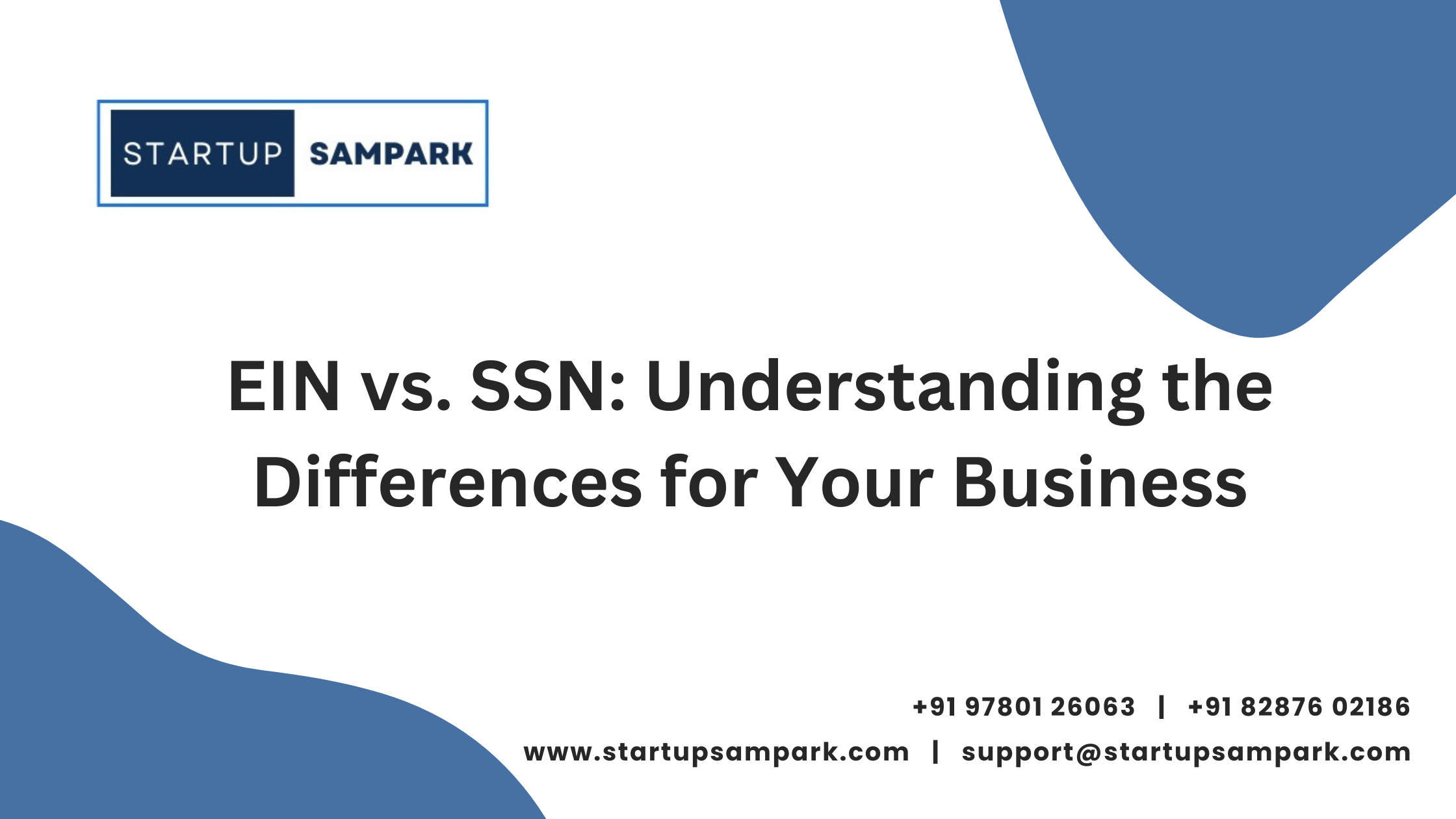EIN vs. SSN: Understanding the Differences for Your Business
EIN and Why It Matters for Businesses?
An Employer Identification Number (EIN) is a unique nine-digit number assigned by the Income Tax Department in India, often equivalent to a Tax Identification Number (TIN). The EIN serves as an identifier for businesses, especially for tax purposes. This number is essential for a variety of business activities, such as filing taxes, opening a business bank account, and applying for permits. The EIN is similar to a Social Security Number (SSN) in its structure, but it is exclusively for businesses and organizations rather than individuals. If you’re planning to operate a business in India, understanding the need for an EIN will help you maintain compliance and smooth business operations.
SSN, and How is it Different from an EIN?
A Social Security Number (SSN) is typically used to track individuals’ earnings and tax contributions. Unlike the EIN, which is a business identifier, an SSN identifies individual taxpayers, mainly for employment and personal income tax purposes. SSNs are assigned to Indian citizens and legal residents for the purpose of tracking personal financial and tax activities. For business purposes, however, an SSN is insufficient because it lacks the comprehensive capabilities required to identify a business entity. The primary difference lies in the purpose of these identifiers: an EIN is for businesses, while an SSN is for individual use.
-
 Startup Registration (DPIIT Recognition)₹8,850.00
Startup Registration (DPIIT Recognition)₹8,850.00
Applying for an EIN vs. an SSN: Process and Requirements
The application process for an EIN differs significantly from that for an SSN. For an EIN, business owners typically apply through the Income Tax Department’s online portal or authorized government websites, providing specific business-related information like legal entity structure, business address, and activity description. In contrast, applying for an SSN involves individual verification, including identification documentation like a passport or national identity card. Additionally, while an EIN application is associated with the business and may be completed online quickly, obtaining an SSN is a more rigorous process that involves individual background checks and verification steps to ensure the applicant’s legal status in India.
Legal Obligations and Reporting Differences Between EIN and SSN
An EIN and SSN carry different legal obligations and reporting requirements. For businesses with an EIN, there are filing requirements for Goods and Services Tax (GST), income tax, and payroll taxes if they employ workers. The EIN is also used for any business-related regulatory filings or audits. On the other hand, an SSN is used for reporting individual tax obligations like personal income tax, savings, investments, and deductions. Businesses cannot substitute an SSN for an EIN when it comes to filing business taxes, and vice versa. Business owners must use an EIN to meet their corporate tax obligations, which legally differentiates the business’s finances from personal finances.
Benefits of EIN for Business Privacy and Security
One key benefit of having an EIN is the additional privacy it provides for business owners. Since an EIN separates business and personal finances, it minimizes the need to use an SSN, protecting individual privacy. By using an EIN for business-related transactions, business owners avoid disclosing their SSNs in multiple business dealings, which enhances personal security. An EIN helps keep business liabilities separate from personal ones, safeguarding personal assets from potential business risks. In the case of tax audits or legal scrutiny, using an EIN simplifies the process as it keeps business operations distinct from personal records, adding an extra layer of security for entrepreneurs.
Flexibility and Expansion: EIN Benefits for Growing Businesses
An EIN is vital for businesses planning to scale or expand. With an EIN, businesses can register for GST, open business bank accounts, apply for business loans, and even hire employees. This flexibility is invaluable as the business grows and requires more regulatory filings and financial management. Unlike an SSN, which is limited to personal identification, an EIN can be used to establish business credit, allowing the business to build a credit profile that aids in securing financing. As a business grows, having an EIN facilitates seamless integration with financial institutions, vendors, and clients, making it easier to manage an expanding enterprise.
Startup, India
-
 Startup Registration (DPIIT Recognition)₹8,850.00
Startup Registration (DPIIT Recognition)₹8,850.00















Post Comment